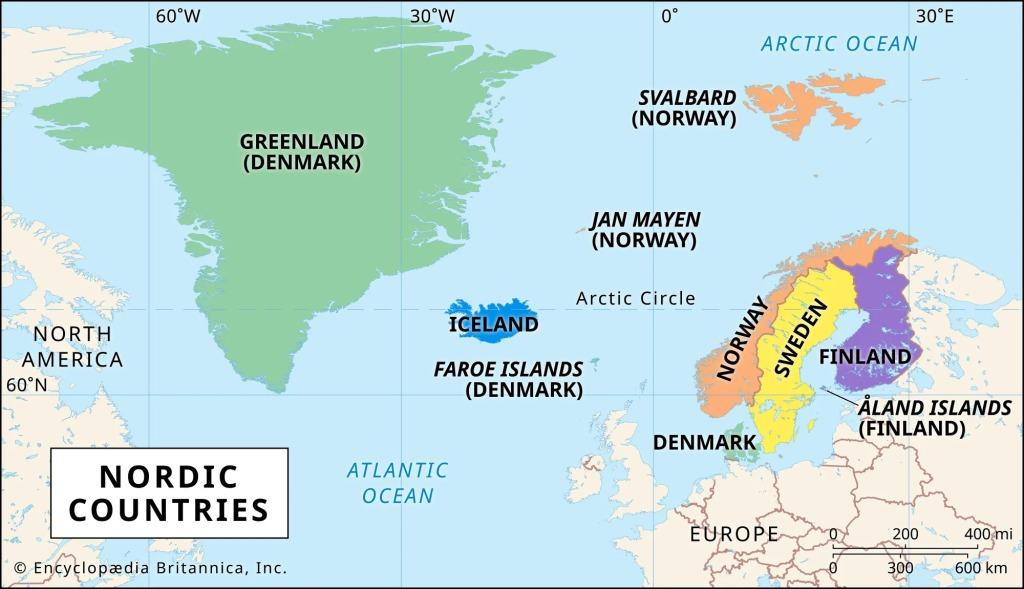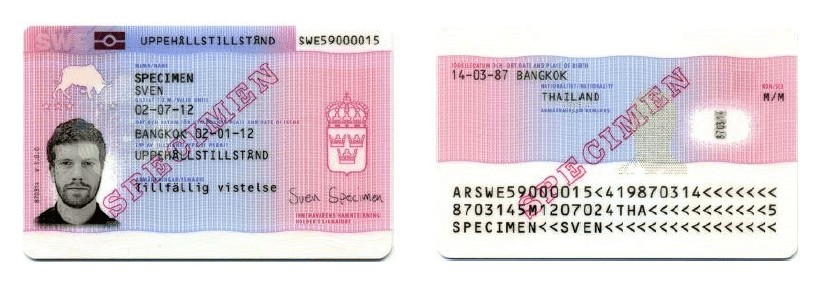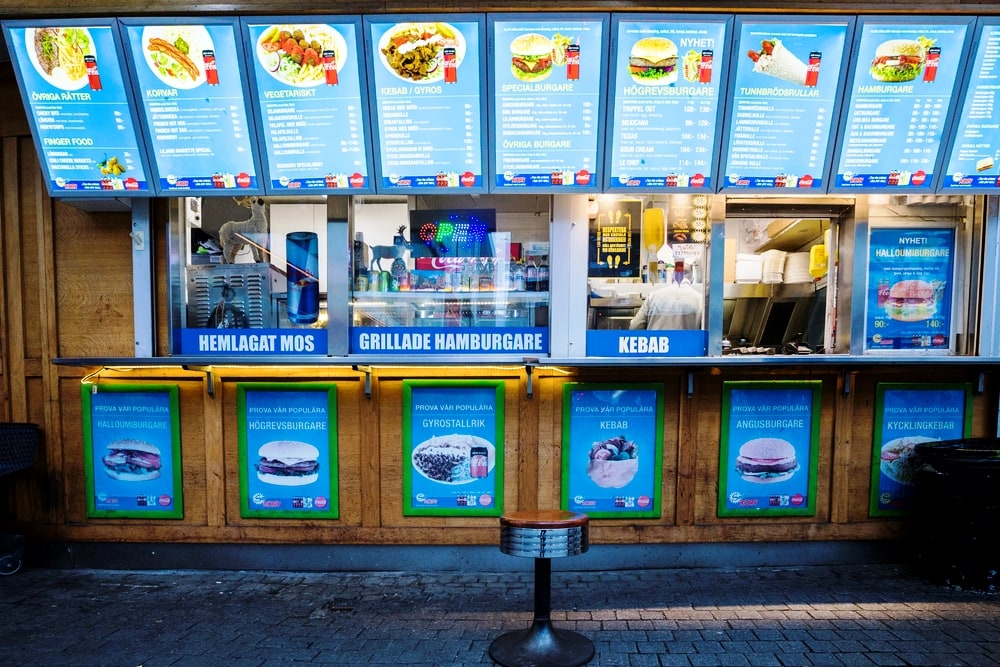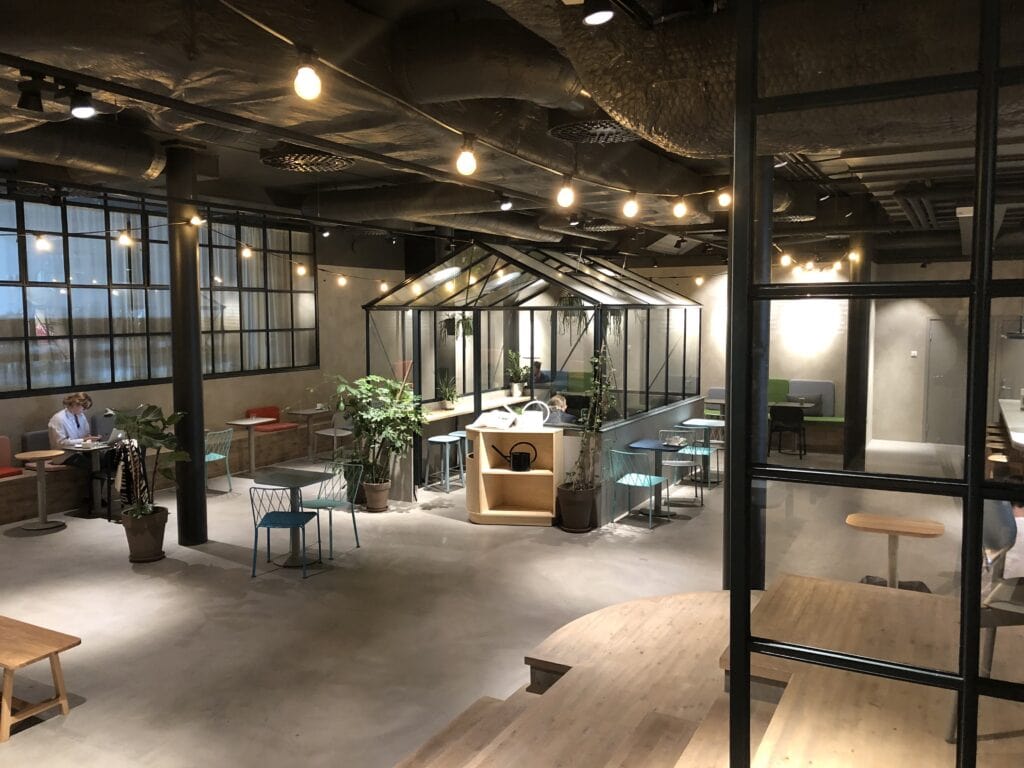The Pros and cons of living in Sweden and moving here
If Sweden doesn’t scream ‘most dreamy place to emigrate to at you, we don’t blame you. While a lot of people seem to seek out tropical, easy-going and cheap countries to live, we ended up in Sweden, which is none of those things. We didn’t exactly plan it, either.

We had been traveling for a few years, getting stuck in New Zealand during the fateful 2020 and then living in a campervan for most of 2021, driving around Europe. We sold all of our possessions in the Netherlands, impulsively swapped the campervan for a 4×4 with a rooftop tent that we planned to drive to China in, but it didn’t take us long to realise fall, 2021, still wasn’t a good time for a journey like that.
But we did have the car and the tent, and so we decided to head to Sweden and thoroughly test our new set-up. When we arrived in late October, temperatures were dropping fast and we (ahem, I) quickly found out winter camping wasn’t my jam. Scandinavian evenings in a tent were dark and long, and after an undisclosed amount of nights, a campfire wasn’t cutting it anymore.

We drove around for a few weeks, from houses to cabins, until we stumbled upon the place we are still in today. It happened to be a small plot of land with a few Swedish stugor (cottages) that we now rent out to make a living. We fully emigrated to Sweden early 2022 and haven’t looked back since.
Xyuandbeyond is reader-supported. When you buy through links on our site, we may earn an affiliate commission. You can read my privacy policy here.
Moving to Sweden
Sweden is the largest Nordic country and is uniquely located in-between the other three large Nordic countries (Denmark, Norway and Finland) and continental Europe.

For those from the European Union (EU Citizens) you have the right to reside in Sweden for up to three months without registering. However, if you plan to stay longer, you should register with the Swedish Tax Agency (Skatteverket) within three months of arriving in the country. This registration is essential for obtaining a Swedish personal identification number (personnummer) and accessing various services.
Getting a work visa for Sweden
Obtaining a work visa in Sweden involves several steps and requirements. Here’s a general overview of the process:
- Job Offer: To apply for a work permit in Sweden, you typically need a confirmed job offer from a Swedish employer. The job offer should specify details such as your job role, salary, and employment conditions.
- Check Eligibility: Depending on your citizenship and the type of work you’ll be doing, different rules might apply. Check the Swedish Migration Agency’s website to determine the specific requirements for your situation.
- Employer’s Role: Your employer plays a crucial role in the process. They may need to provide evidence that they’ve advertised the position within the EU/EEA and Switzerland before offering it to a non-EU citizen.
- Application: You’ll need to apply for a work visa through the Swedish Migration Agency (Migrationsverket). The application can often be submitted online. Make sure to include all required documentation, which might include your job offer, passport, educational certificates, and other supporting documents.
- Processing Time: Visa processing times can vary, but you should generally apply well in advance of your intended start date. It’s recommended to apply at least three months before you plan to move to Sweden.
- Biometrics and Interview: Depending on your country of residence, you might need to visit a Swedish embassy or consulate to provide biometrics (fingerprints, photo) and attend an interview.
- Residence Permit: If your work visa is approved, you’ll receive a residence permit that allows you to live and work in Sweden. You might also need to undergo a medical examination before receiving your permit.
- Health Insurance: You might need health insurance coverage during the initial waiting period before you’re eligible for the Swedish healthcare system.
- Registration: Once you arrive in Sweden, you need to register with the Swedish Tax Agency to obtain a personal identification number (personnummer). This number is crucial for various administrative tasks, such as opening a bank account, signing up for healthcare, and more.
- Extension and Renewal: Work permits are typically granted for a specific period. If you plan to stay longer, you’ll need to apply for an extension before your current permit expires.
- Digital Nomads: Sweden does not currently offer a digital nomad visa. Individuals can visit and stay for up to three months on a Schengen tourist visa, and some freelancers may be eligible to apply for a two-year self-employment visa
Has it been easy? Not always. Still isn’t. Are we happy here? Yes!

Pros and cons of living in Sweden – Living abroad
Outdoor Lifestyle
Coming from a full-fledged city back home where sure, we hiked sometimes, to Scandinavian country living was quite a switch. It’s easy to spend time outside here, all seasons are beautiful. It is never crowded anywhere you go and the possibilities are endless.

We swim in the lakes in the summer and canoe to a little island for a picnic, we hike all year round, and play in the snow in winter. Because we are not in a city, if we don’t make a conscious effort to get outside, we’d be hauled up inside the house for weeks. And so we go outside, enjoy the views, scavenge for mushrooms and pick blueberries to make pies.

The outdoors ar much more engrained in daily life than we were used to. People hunt and come hunting season, we can hear the shots sitting on our porch. Kids in school go outside every single day, rain or shine, and are taught about it, and it’s not uncommon for people to pull over by the side of the road because they’ve seen stuff they want to pick.
Right of public access
Attached to outdoor living, is the Swedish allemansrätten, or right of public access. Anyone in Sweden has a right to go anywhere they want. Whether that’s to sit by the side of a lake, pass through land that belongs to someone, or camp out in the forest. It does have some rules (obviously you can’t set up shop in someone’s backyard or plow your jeep through the pasture), you never really have to worry if you’re supposed to be there.

Reasonable Work Life balance and high standard of living
Paid parental Leave: If you’ve heard anything about the Swedes at all, it might be that both parents get to take a lot of paid maternity and paternity leave. It amounts up to 480 days a year, most of it to be divided by the parents themselves.
Vacation Days: Vacation is also a big deal. Everyone has a right to take 4 continuous weeks in summer, which us why you’ll find most of Sweden closed in July. Don’t even try to get your car fixed!
Working from home was a thing here before Covid, and most employers don’t need you to sit at your desk from 9 till 5. A job done is a job done and having an appointment in the middle of the day is fine to make up for somewhere else at your own discretion, and you won’t be very successful trying to contact someone on a Friday after 4pm.
Scandinavian summers
The summers here are nothing short of magical. They start with a bang at Midsummer (midsommar), which is celebrated around the 24th of June. The longest day of the year is celebrated with sing and dance around the midsummer pole and drinks and food with friends and family.

With any luck, the weather is a fantastic 25 degrees all through summer. The days are long and call for swim sessions at any pretty lake, bbq’s, wild flowers everywhere and a slow life spent in the country. Many Swedes have summer homes in the country and will spend all their time there with family.
LGBTQIA2S+ in Sweden
In terms of LGBTQ matters, Sweden stands out as exceptionally inclusive and progressive within Europe for gender equality. Notably, the country legalized same-sex marriage in 2009 and endorsed adoption rights for same-sex couples as early as 2003. Sweden implemented hate crime legislation safeguarding individuals based on their sexual orientation, gender identity, and gender expression.

Swedish food
Sweden boasts a rich array of culinary choices, blending both traditional and contemporary options to cater to diverse preferences.

From classic Swedish comfort dishes to emerging vegan culinary trends, the country caters to an extensive range of tastes. Of course Sweden’s National Dish featured at IKEA stores around the country consists of mashed potatoes, spicy meatballs, a creamy gravy and the sweet and tangy ligonberry sauce.

Healthcare System
I have debated a little whether Swedish healthcare is a pro or a con. It’s a little of both, but we’ll get into the good stuff first! Technically, Sweden has an excellent health systems and Swedish healthcare is free. I say technically, because a) you will need to be a tax paying resident to receive free healthcare and b) it is paid for by taxes.
But once you are a tax payer, hospital care, surgeries and long-term medication is free. The only thing that comes out of pocket are doctor’s appointments (GP) before you are sent for further care, to the equivalent of $10, and short term meds. Those aren’t expensive either, we paid around $6 for a bottle with 400 blood sugar regulating pills.
Free Education
The majority of individuals in Sweden have the opportunity to receive education either for free or at a nominal cost. Higher education institutions in Sweden do not charge any tuition fees for their students. This applies to those who have been raised within the country. While students in Sweden might still accrue some level of debt, the average amount, totaling around $19,000 (124,000kr) upon graduation, is comparatively 30% lower than the median debt incurred by students in the United States.
Fika
Yup, it’s a whole thing. It’s not ‘just’ a coffee break, but it is culture. Fika is embedded in every day life, whether you have a job or not. Twice daily, morning and afternoon, you sit down for coffee and something sweet. (Traditionally, a fika comes with 7 recipes for cakes that are all supposed to be served at once).

If at work, you don’t talk about business, but you use this time to connect with your colleagues and talk about family, hobbies or other non-work related topics. At home, you do the same and take some time out of your day to relax.
If you invite someone for fika at your house, this is to be taken seriously! Coffee and tea are to be served, as well as at least 2 different kind of treats. If you get invited, don’t stick around and overstay. 60 to 90 minutes is preferable!
Everyone speaks English
While the Swedish language isn’t the hardest language in the world to learn, you’ll be assured to know that virtually all Swedish citizens between the ages of 7 and 80 speaks perfect English as a second language. The older generation might be a bit shy, but people are mostly happy to show off their shiny language skills. They’ll never admit it if you compliment them on it though!
Reliable public transportation
Sweden is known for its reliable public transportation. Public buses, trams, and trains are all safe and efficient means of getting around the country. Whether you want to explore the major cities or venture to rural areas, Sweden’s public transportation system makes it easy and enjoyable.

The Cons of Living in Sweden
The Bureaucracy
Swedish government bureaucracy is kinda nuts, even if you are a EU citizen. It basically comes down to this: if you don’t have a Swedish personal identity number, it is real hard to live your daily life. Opening a bank account will test your patience, you won’t be able to order stuff online or make online payments, you can’t pick up packages, register for anything or qualify for anything.
Getting this number is a paper consuming process, but mostly not very complicated, if you are a EU citizen. Once you do receive this number you’re not done, you will also need to apply for an ID card. Once you have this, you will be allowed online banking and all the fun stuff that comes with it. My personal favourite; opening a 24/7 supermarket with a phone app, shop and check out on the same app without anyone ever being present.
High Taxes
Scandinavian countries are well known for their broad social safety net and their public funding of services such as universal health care, higher education, parental leave, and child and elderly care. Sweden’s top personal income tax rate of 52.3 per cent is comparable to America’s top rate of 50.3 per cent (in California), but Sweden’s top rate applies to income starting at roughly US$62,000 compared to America’s top rate, which kicks in at between roughly US$535,000 and US$1 million. Swedes and Italians pay about 45 per cent of their income at £80,000. But this does mean a very high quality of life for all Swedes.
Learn Swedish
Learning Swedish can be quite challenging. The intricacies of the language are not easily mastered, particularly when it comes to its unique sounds and pronunciation. There may be moments where the learning process feels daunting, almost insurmountable.
Controlled alcohol store
In the years following World War II, Sweden confronted a significant challenge with alcoholism. After experimenting with various approaches to address this issue, the government introduced a policy known as Systembolaget in 1955. This system involves a government-operated alcohol retailer, which exclusively sells products containing more than 3.5% alcohol.
Visiting a Systembolaget requires advance planning, as the stores usually close at 7pm on weekdays and 2pm on weekends. This establishment stands as the sole avenue for acquiring alcoholic beverages of quality.

Lack of privacy
With the above mentioned number, you will be entered into the government system. And that means the following: everyone and their mother wil be able to look you up online (there’s designated websites for this) and look up your data.
Date of birth, your partner and children’s names and dates, whether you have a car, a pet, where you live and how affluent your neighbourhood is. This is all free. Pay a little money and anyone will be able to find out how much money you make. Though for the latter, the subject of your investigation will receive a ping and you’ll be busted. Better think twice before your road rage!
Everything is expensive – the cost of living in Sweden
And I’m not just talking groceries. Electricity rates are soaring, as are the prices of wood. Hiring any professional is expensive (if they even have the time) and since working on electricity for example by law needs to be executed by a licensed professional, these things can quickly add up when you’re buying a house. Sweden does have a very strong economy with the majority of businesses being owned by small to medium corporations.

Alcohol is indeed expensive as well, and anything over 3.5% is only sold at government liquor stores in a (failed) attempt to combat alcoholism. Dining out, don’t be surprised to be paying $10 for a glass of wine or a beer.
Healthcare
As mentioned previously; there are definite cons to Swedish healthcare as well. Even though the quality of healthcare is top tier, access to it leaves something to be desired. Waiting lists are long, hospitals in the country do not always have specialists in residence, and the state of mental healthcare is worrisome.
Case in point: when my husband broke his foot, we were supposed to go see the regular GP first, but as they do not have an X-ray machine all they could do was guess. We were sent onwards to the next hospital an hour away, where a photo was taken and the great waiting game began.

We were wheeled around the hospital where no one seemed to know what we were doing there because the GP didn’t call ahead. After 2 hours, we were seen by a doctor who didn’t really know what to do, and had to call another hospital for advice. There was no one there, which amounted to another waiting time of 2 hours, after which they decided there was nothing to be done. Fun day. But silver linings: it didn’t cost us anything!
When sick, it’s important to put your foot down. Doctors can be hesitant to refer to specialist care or prescribe medication. Bring your history with you.
The dark – Long Winters
Winter months can be long. Come November and through to February, darkness comes creeping in at 3:30PM and the sun is only fully up at 9 in the morning. And we’re not even that far up north of Sweden. The higher you go, the less daylight. It can be difficult for people struggling with (winter)depression, and is definitely something that needs to be taken into consideration.
And remember; the darker, the colder, but an upside to this is the potential to have many evenings watching the Northern Lights.

Making friends in Swedish society
Scandinavian people are notoriously surly and while this is not necessarily true, it is incredibly hard to make friends. Swedes are very friendly, will be happy to help out a neighbour, but you will need to ask. They won’t want to bother you, unless your lawn isn’t being kept nicely, but that’s a whole another story!
But to get into a Swede’s inner circle is near impossible. Swedes grow up and stick with their school friends. A lot of their friendships are decades long, and they don’t see the need to get to know a new person and then having to integrate them into their lives and friend groups. It’s too much work and too little desire.
As a result, it is difficult to connect. It’s a little better in the cities, but in the country, you will be lonelier. It’s a bit daunting as well, trying hard and wondering why it’s not working out, at the risk of feeling insecure about it.
Seeking out expat communities, taking a course on something, or going a language cafe might give you a little bump!
The law of Jantelagen
The (very old) law of Jante are a set of ‘rules’ people still have in the back of their heads. It comes down to this: don’t think you’re better or smarter than anyone, don’t think you’re special or know more than anyone else and you’re not more important than anyone else.

Obviously it’s not actual law, but it does shine an interesting light on Swedish culture. People don’t like showing off or show-offs, they’re not loud, they won’t easily accept compliments and they will downplay their achievements.
This can be hard as an immigrant at first. You don’t want to stand out, but you also want to be your true self.
Is Sweden a great place to live?
Personally, it’s a simple yes for us. Our quality of life has improved. We are able to enjoy nature, the outdoors and the clean air so much more than before.
We love our little house in the middle of nowhere and thoroughly enjoy the peace and quiet that come with it.

We eat healthier because we have the space to grow our own food (that’s not to say the Swedes are a healthy bunch; they love pizza and kebab) and we eat out a whole lot less simply because we don’t have the option readily available to us anymore.
It has been a challenge navigating our way through all the paperwork, figuring out how health coverage actually works here, importing a car and setting up a business with all the accounting stuff that comes with it.

Would we have been able to do all this in the Netherlands? Probably. We just didn’t want to.
Would we have been able to do all this in our beloved Thailand? Probably. But we like winter.
AUTHOR BLURB
Jeltje (and her husband) moved to Sweden after years of traveling around and settled down running a small business. She runs Traveler’s Itch on the side, a travel blog for the curious traveler.
Other articles you might like
Pros and cons of living in Canada by a Canadian Immigrant
Pros and Cons of Living in Mexico
Pros and Cons of Living in France
Pros and Cons of Living in UK: Expat Life in England
My Move to Europe: 23 personal stories
Move to Ireland: the ultimate guide on moving to Ireland
How to become a digital nomad – digital nomad visa Europe
Pin it to save it

